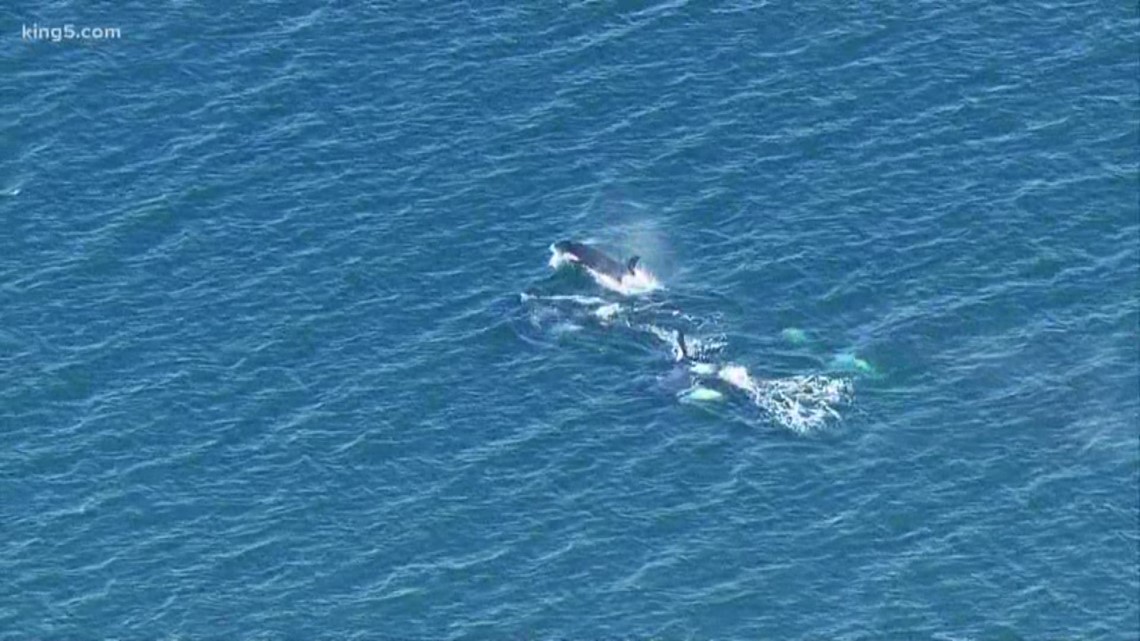SEATTLE — The National Wildlife Foundation and several of its partners announced $1.2 million in grants and contributions will go towards research to stabilize and recover the endangered Southern Resident orca population.
The announcement happened at NOAA's Fisheries Science Center in Seattle on Wednesday. A total of $666,200 in new conservation grants was awarded to multiple organizations across Puget Sound. The grants will generate $610,600 in matching contributions for a total of more than $1.2 million, according to a release from the National Fish and Wildlife Foundation.
“They’re an iconic species here in the Pacific Northwest,” NOAA biologist Brad Hanson said. “Losing Southern Killer Whales would be like losing Mount Rainier.”
Scientists said there are only 73 Southern Resident killer whales left in the Puget Sound region, which they consider to be a very low number relative to the total living population worldwide, which is in the thousands. An even lower number of those whales are capable of reproducing and revitalizing the group.
Some of the funding will go to helping scientists study feeding patterns of orcas, including coordinating with more than 20 salmon research efforts to investigate hatchery management and orca nutritional health to prioritize specific salmon runs for restoration.
"Recent research determined that Chinook salmon are having low survival rates in the early life stages," read the release from the NFWF. "This results in less fish making it out to the ocean and therefore lower numbers returning of the size that killer whales need to feed. The six grants announced today support projects throughout the food chain to understand the shifting prey base of Chinook and to restore habitat important to both juvenile Chinook and their prey."
"This is an important partnership that is supporting scientific research,” Director of Conservation Biology at NOAA Michael Ford said.
In addition to the conservation grants, the partners in the Killer Whale Research and Conservation Program, including SeaWorld, Shell, the U.S. Fish and Wildlife Service, and NOAA Fisheries, also announced they'll be supporting a new campaign called Be Whale Wise.
The "Be Whale Wise" program is a public education effort geared towards educating local boaters about what they can do to better protect killer whales. The campaign will include retail displays at Shell service stations around the region, according to the release.

